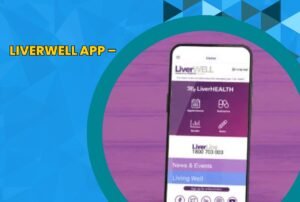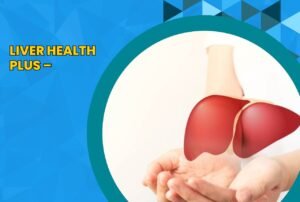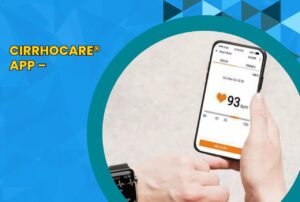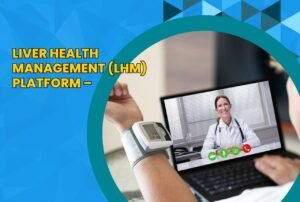
-
Posted By Rashmi Sarmah
-
-
Comments 0
The Role of Technology in Modern Liver Health Management
The best tech tools to manage liver health are becoming increasingly important as the liver plays a vital role in our overall health, functioning as the body’s natural detoxifier, metabolizing nutrients, and regulating vital biological processes. However, with modern lifestyle changes, liver diseases such as fatty liver, cirrhosis, and hepatitis are on the rise globally. According to the World Health Organization, liver diseases now account for nearly 2 million deaths each year, signaling a growing public health concern.
In response to this surge, technology is rapidly transforming how we approach liver health. From mobile applications to advanced AI-powered diagnostics, digital health solutions are reshaping the way patients and healthcare providers manage liver conditions. Whether it’s early detection or ongoing monitoring, these innovations offer convenience, accuracy, and improved patient outcomes.
Modern tech tools are revolutionizing how we monitor and manage liver health, empowering individuals with real-time insights while supporting healthcare systems with efficient decision-making platforms.
Understanding the Best Tech Tools to Manage Liver Health
Liver health management tools are digital solutions designed to help individuals and professionals monitor, evaluate, and improve liver function. Traditionally, liver monitoring relied on lab-based diagnostics and in-clinic consultations. However, advancements in digital health have introduced smarter, real-time tools that are not only more accessible but also more proactive.
The shift from conventional monitoring to technology-driven care stems from the need for early detection, personalized treatment, and improved communication between patients and providers. As liver diseases often progress silently, remote monitoring has become essential in identifying risks before they escalate.
Today’s best tech tools to manage liver health offer data tracking, AI analysis, and telemedicine integration—ensuring that patients stay engaged while providers receive continuous updates for timely interventions. These tools effectively bridge gaps in care, enhance patient outcomes, and contribute to a more holistic liver health management system.
Mobile Apps Among the Best Tech Tools to Manage Liver Health
1. LiverWELL App – A Multilingual Liver Health Tracker
The LiverWELL App is a comprehensive self-management tool developed by Hepatitis Victoria. It enables users to monitor their liver health by offering medication reminders, appointment scheduling, and the ability to track test results. Its multilingual interface supports English, Arabic, Burmese, Chinese, Thai, and Vietnamese, making it accessible to a wide demographic.

The app emphasizes privacy, featuring robust data protection protocols and user-friendly design. LiverWELL empowers users to stay in control of their health journey with a smooth and intuitive experience.
2. Liver Health Plus – Personalized Liver Wellness in Your Pocket
Liver Health Plus stands out as a medical-grade mobile solution with biometric security features. It helps users make informed dietary decisions with smart shopping guidance tailored to liver-friendly foods. The app also provides personalized risk assessments and nutrition plans based on user data.

A built-in knowledge hub offers curated information from hepatology experts. Integration with lifestyle tracking ensures a 360-degree view of liver wellness, making it one of the best tech tools to manage liver health today.
3. CirrhoCare® App – Remote Monitoring for Cirrhosis Management
Designed specifically for cirrhosis patients, the CirrhoCare® App allows remote tracking of vital parameters such as blood pressure, weight, and ECG. This app facilitates seamless communication between patients and healthcare teams, enabling early detection of complications and reducing hospital readmissions.

By integrating with clinical decision support systems, CirrhoCare promotes timely interventions and enhances quality of life for patients living with advanced liver disease.
Software Platforms as the Best Tech Tools to Manage Liver Health
1. LiverPRO – Predictive Software for Early Liver Fibrosis Detection
LiverPRO is a clinical-grade software that detects early signs of liver fibrosis using standard blood test data. Its powerful risk assessment algorithms provide accurate predictions, allowing physicians to initiate treatment before severe damage occurs.

LiverPRO is CE-certified and widely used across European healthcare systems. It integrates smoothly with hospital workflows, making it a reliable tool for population-wide liver screening and management.
2. Liver Health Management (LHM) Platform – Cloud-Based Monitoring at Its Best
The LHM Platform is a cloud-based system that supports continuous liver disease monitoring. It integrates results from FibroScan® and interprets them using AI-powered tools, aiding clinicians in real-time decision-making. By outlining clinical care pathways, the LHM platform ensures systematic liver disease management.

It also offers automated reporting and data visualization features, streamlining communication within multidisciplinary healthcare teams.
3. EL-FIT App – Supporting Liver Transplant Candidates Through Fitness
EL-FIT is specifically developed for liver transplant candidates. It helps patients stay physically active by recommending tailored exercise plans based on fitness levels. The app features gamification elements, educational videos, and direct links to healthcare teams for monitoring progress.

EL-FIT enhances transplant readiness and recovery, making it a valuable digital companion for those on the liver transplant journey.
Future-Ready Innovations: Emerging Tech Tools to Manage Liver Health
The future of liver health is being shaped by cutting-edge technologies like artificial intelligence and machine learning, which are enhancing diagnostic accuracy and predicting disease progression with remarkable precision. Wearable devices—such as smartwatches and Bluetooth-enabled blood pressure monitors—are offering continuous, real-time liver health insights without the need for clinic visits.
Innovative solutions like home-based liver assessment kits, such as BITS Pilani’s AI-enabled prototype, are pushing boundaries by enabling users to conduct liver enzyme checks at home. Moreover, digital phenotyping is emerging as a promising tool in identifying behavior-linked liver risks, especially for alcohol-related liver disease.
As these technologies become more refined and accessible, the best tech tools to manage liver health will continue to evolve, offering a future where liver care is proactive, personalized, and more effective than ever before.
Expert Insight: Dr. Amritangsu Borkakoty on the Role of Tech in Liver Health
Dr. Amritangsu Borkakoty, a leading hepatologist in Guwahati and Assam, emphasizes the importance of digital integration in modern liver care. As a consultant at Medicity Guwahati, Dr. Borkakoty leverages technology to provide accurate diagnoses, monitor high-risk patients, and ensure better follow-up care.
He recommends that patients adopt mobile health apps and wearable trackers to stay informed and engaged in their treatment. According to him, these tools serve as excellent complements to traditional clinical care by enabling early detection and improving adherence to medical advice.
For consultations or to learn more about how technology is transforming liver care, patients can reach Dr. Borkakoty at Medicity Guwahati, where advanced diagnostics meet compassionate expertise.
Conclusion: Why the Best Tech Tools to Manage Liver Health Matter
As we’ve explored, the best tech tools to manage liver health offer a wide range of benefits—from early diagnosis to personalized care and better outcomes. These tools empower patients with real-time data and support healthcare providers with intelligent decision-making capabilities.
While digital solutions play a crucial role, they are most effective when combined with expert medical guidance. As we move into 2025 and beyond, the integration of AI, remote monitoring, and digital diagnostics will continue to redefine liver health management.
Whether you’re a patient or a healthcare provider, embracing these tools can lead to improved liver outcomes. Start your proactive liver health journey today by exploring the right tech tools that fit your needs.
Recent Posts
- How to Reduce Liver Inflammation Fast: 5 Proven Tips for Rapid Liver Recovery
- Why You Shouldn’t Ignore NAFLD: 5 Shocking Health Risks You Need to Know
- Nutrient Rich Food for Liver: 6 Powerful Foods That Transform Liver Health
- 7 Best Medical Tests to Diagnose NAFLD Early: A Complete Guide
- 8 Evidence-Based Benefits of Treating NAFLD Early for Better Liver and Metabolic Health


